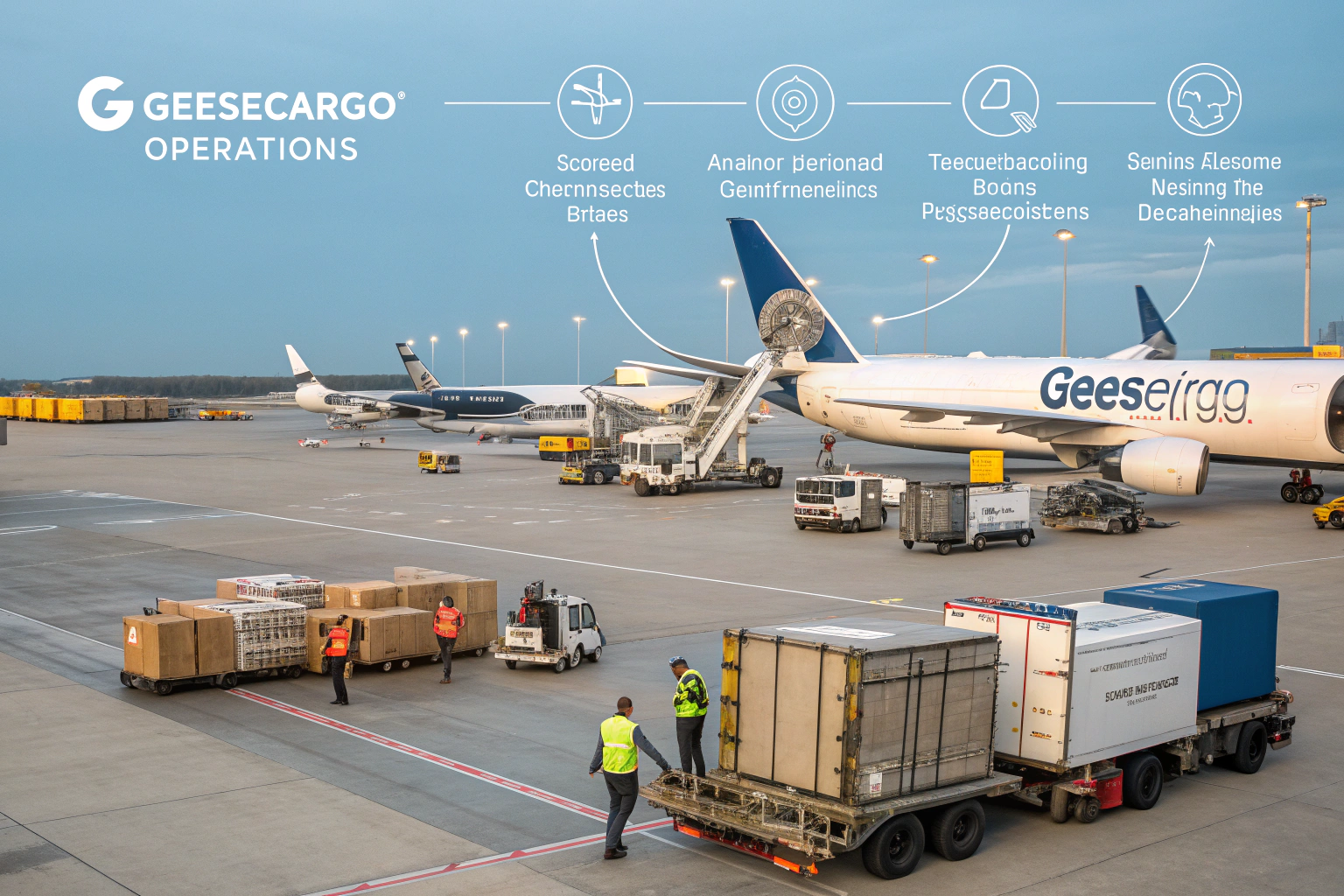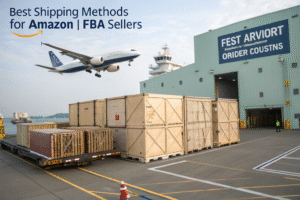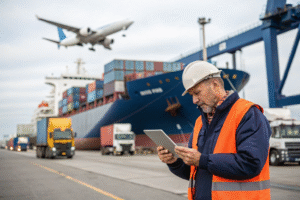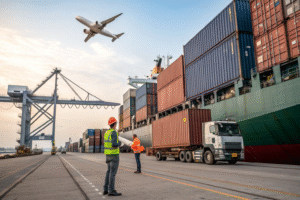As a business owner sourcing from China, you know that a delayed shipment can mean missed sales, unhappy customers, and a direct hit to your bottom line. The question of on-time delivery is not just about logistics; it's about the reliability of your entire supply chain. When your products are stuck at a port or sitting on a tarmac, your business suffers.
GeeseCargo ensures on-time delivery through a combination of strategic carrier partnerships, advanced real-time tracking technology, meticulous pre-shipment planning, and robust contingency protocols, all managed by a team with years of experience on European and American routes. We don't just move your cargo; we manage your timeline with professional precision, turning logistical complexity into a reliable, competitive advantage for your business.
Let's dive into the specific strategies and systems we have built over many years to make sure your goods from China arrive in the US on time, every time.
What Are the Key Factors for Reliable Sea Freight from China to the USA?
Sea freight is the backbone of trans-Pacific trade, but its long transit time is often where delays can creep in. For a business owner like you, reliability is as crucial as cost. We focus on controlling the variables within the sea freight process to deliver the consistency your business planning requires.
The foundation of reliable sea freight lies in securing predictable sailing schedules and managing port operations efficiently. Unreliable carriers or congested ports are primary causes for delays. At GeeseCargo, we leverage our long-standing relationships with major shipping lines to secure priority access and stable space on vessels. Furthermore, our contacts within key ports in China and the US help streamline the loading and unloading processes, minimizing dwell time.
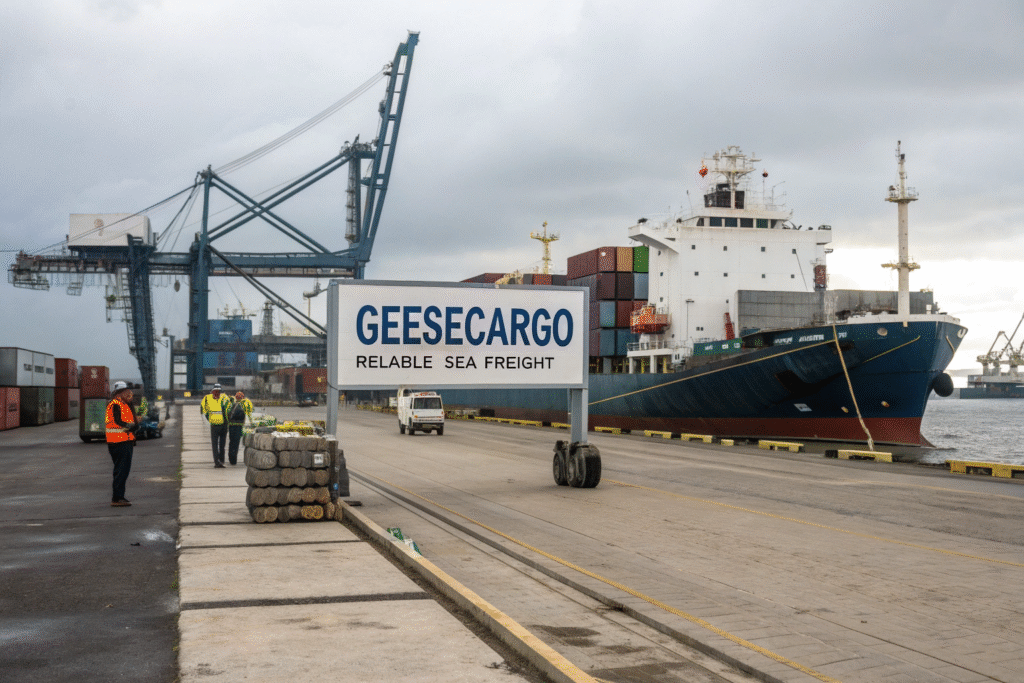
How Do You Secure Stable Shipping Schedules?
Stable schedules start with strong partnerships. We do not just book space; we build alliances with top-tier carriers. This gives us better visibility and control over your container's journey from the moment it leaves the factory. We monitor vessel performance closely and choose partners known for their schedule integrity. For our clients, this means fewer surprises and more accurate Estimated Times of Arrival (ETAs). You can check the importance of schedule reliability through industry reports on sites like Journal of Commerce.
What Port Management Strategies Prevent Delays?
Efficient port management is a game of inches. Our strategy involves pre-clearing documentation and leveraging our local port contacts to expedite handling. We understand the peak times and potential bottlenecks at ports like Shanghai, Ningbo, and Los Angeles/Long Beach. By having boots on the ground, we can quickly resolve issues that might otherwise cause a container to be flagged or delayed. Understanding the customs clearance process beforehand is a critical part of this strategy, ensuring your goods move swiftly from the ship to the next leg of their journey.
How Does Real-Time Cargo Tracking Enhance Timeliness?
In today's world, not knowing where your shipment is feels like a step back in time. Real-time tracking is not a luxury; it's a fundamental tool for proactive supply chain management. It transforms logistics from a reactive fire-fighting exercise into a predictable, managed process.
Real-time tracking provides full visibility from origin to destination. This allows both us and you, the client, to monitor progress, verify location, and receive immediate alerts if any deviations from the plan occur. This transparency is crucial for making informed decisions, updating your sales team, or managing warehouse receiving schedules. It turns the "black box" of international shipping into a clear, manageable pipeline.
![]()
What Tracking Technology Do You Use?
We use an integrated platform that pulls data directly from carriers and our own checkpoints. You get a single dashboard view of your shipment's status, whether it's on a ship, plane, or truck. The system provides updates on location, temperature (for sensitive goods), and even container seal integrity. This level of detail is becoming the standard, and insights from platforms like Ship Technology often highlight its importance for modern freight forwarding.
How Does Proactive Alerting Prevent Problems?
Visibility is useless without action. Our system is configured to send automatic alerts for key milestones and, more importantly, for any potential issues. If a vessel is behind schedule or a truck is stuck in traffic, you and our operations team are notified immediately. This early warning system gives us a head start to implement contingency plans, such as arranging for a faster truck route upon arrival or adjusting warehouse appointments, thereby protecting your final delivery date. This proactive approach is a core part of reliable supply chain management.
Why Is Pre-Shipment Planning Critical for On-Time Delivery?
The work done before a container is even loaded is what sets the stage for a successful shipment. Rushed or incomplete planning is a recipe for delays. For a business owner focused on timeliness, a forwarder's planning discipline is a key differentiator.
Pre-shipment planning involves confirming all documentation, bookings, and inland logistics well in advance. This phase is where we identify and eliminate potential roadblocks. A single error in a commercial invoice or a missed cut-off time can cascade into weeks of delay. Our meticulous approach ensures that when your goods are ready at the factory, every other element of the supply chain is already aligned and waiting.

How Do You Handle Documentation Accuracy?
We have a dedicated team that specializes in international trade documentation. They verify every detail on the Bill of Lading, Commercial Invoice, and Packing List against your instructions and destination country regulations. This rigorous check ensures your cargo won't be held up by customs for incorrect or missing paperwork. The U.S. International Trade Administration provides valuable guidelines that we incorporate into our checks.
What Is the Role of Booking and Route Optimization?
We don't just book the first available vessel or flight. Our team analyzes schedules, transit times, and port/airport congestion to select the most efficient and reliable route for your specific cargo and deadline. We consider factors like carrier reliability, direct vs. transshipment services, and the current state of intermodal transport links. This data-driven booking process is a cornerstone of our ability to provide competitive and timely service.
What Contingency Plans Safeguard Against Shipping Delays?
Even with the best plans, the unpredictable can happen. Weather, labor disputes, or mechanical failures can disrupt the smoothest logistics operation. The mark of a truly reliable partner is not the absence of problems, but the ability to respond to them effectively.
We have developed a multi-layered contingency framework designed to mitigate disruptions. This includes having pre-vetted alternative carriers, flexible routing options, and a communication protocol that keeps you informed every step of the way. Our goal is to have a "Plan B" (and even a "Plan C") ready to deploy, minimizing the impact of any unforeseen event on your delivery schedule.

How Do You Manage Carrier Diversification?
Relying on a single carrier is a significant risk. We maintain relationships with a wide network of shipping lines and airlines. If one carrier faces a disruption, we can quickly switch your cargo to another without a significant loss of time. This flexibility is a direct result of our strong position in the market and our volume of business, which gives us leverage and options that smaller forwarders may lack.
What Is Your Protocol for Weather and Port Congestion?
For weather, we monitor global forecasts and can sometimes reroute shipments to avoid major storms. For chronic issues like port congestion, we use our local knowledge to anticipate delays and adjust schedules accordingly. This might mean routing through a less congested port or using our DDP door-to-door service to manage the entire inland journey, ensuring a seamless handoff even if the port is busy. Understanding broader issues like global trade logistics performance helps us contextualize and react to these challenges.
Conclusion
In the complex world of international shipping, on-time delivery is the ultimate measure of a freight forwarder's skill. It is not achieved by chance but through a deliberate, professional system built on strong partnerships, cutting-edge technology, meticulous planning, and robust contingency measures. At Geesecargo, we have honed this system over many years, specifically for the demanding routes between China and North America. We understand that your business depends on reliability. Let us turn our logistical expertise into your competitive advantage, ensuring your goods arrive on time, every time.
